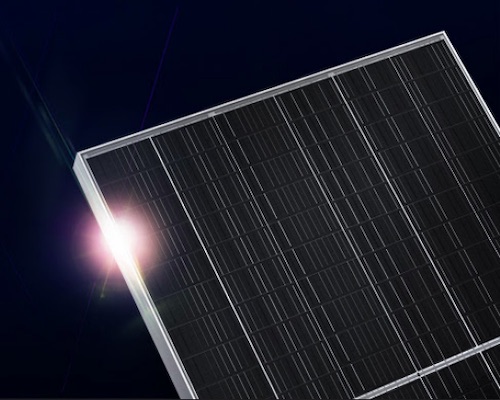
China PV giant Trina Solar says its has achieved a new high in solar module efficiency, notching up a record-breaking 23.03% using its ultra-high power Vertex module that ranges up to 670W in capacity.
The new record – which has been independently confirmed by both TÜV Rheinland and TÜV Nord – was announced on Wednesday by Trina’s Singapore-based State Key Laboratory of Photovoltaic Science and Technology (SKL).
Trina said that the record aperture module efficiency had been achieved by the company’s proprietary Vertex high-efficiency p type monocrystalline silicon module, based on 66 pieces of 210 mm x 210 mm high efficiency PERC cells.
The statement said the SKL researchers had boosted the module’s efficiency to the record level with a new multi-busbar (MBB) technology to improve optical shading and a new hybrid soldering technology to minimize the gap between cells.
Trina Solar released its new generation of Vertex modules in March, at the time unveiling a 670W panel with an efficiency rating of up to 21.6%.
Dr Yifeng Chen, Trina Solar’s head of high efficiency cell and module R&D centre, said that to the best of the SKL team’s knowledge it was the first large-area p-type commercial module with aperture efficiency over 23%.
“Improving module efficiency is key to helping customers to save land, labor and cables,” Chen said. “Trina Solar always focuses on developing leading edge PV technologies and products to achieve commercial success of customers with our innovations.”
As One Step reported in March, the Vertex pushed solar panel output to a new high, just surpassing the 665W module unveiled by Canadian Solar in October of 2020, as part of that company’s Series 7 high-power, high-efficiency HiKu modules.
Trina said at the time that the new module series was particularly well suited to large-scale applications, with the ability to achieve a total power increase of up to 18,760W per string, or 34%, compared to 500W+ modules.

Sophie is editor of One Step Off The Grid and editor of its sister site, Renew Economy. Sophie has been writing about clean energy for more than a decade.
